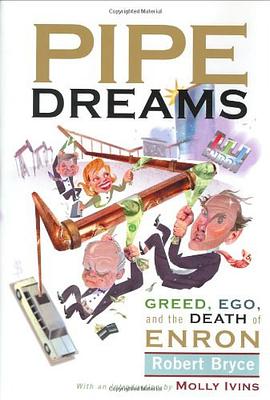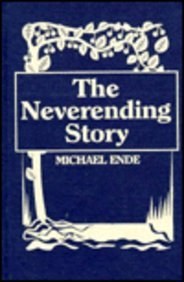

Enron. The word has become synonymous with excess, avarice, and Wall Street skullduggery. It wasn't always so. Once upon a time, Enron was a stable, profitable company with some of the best energy assets in the world. But in the late 1990s, the company changed.
Surely you've heard about some of Enron's convoluted deals and nefarious accounting practices. But what hasn't been explained is Why? Why did this once-thriving, innovative company with rock-solid cash flow suddenly implode? The answer, Texas business journalist Robert Bryce reveals in this book, is that bad business practices begin with human beings.
Pipe Dreams is not your typical boring business book. It's a gossipy, funny, irreverent analysis of Why Enron Failed. It traces Enron's transformation from a small regional gas pipeline company into an energy Goliath...and then tracks step-by-step, business decision by business decision, extra-marital affair by extra-marital affair, how Enron's leaders were corrupted. Based on interviews with more than 200 current and former Enron employees, as well as Wall Street analysts and dozens of company filings with the Securities and Exchange Commission, Pipe Dreams tells the inside story of the greed, sex, and excess that strangled the seventh-largest corporation in America. It contains profiles of the company's key miscreants, including Ken Lay, Jeff Skilling, Andrew Fastow, and Lou Pai, the secretive trading whiz who sold more stock - $270 million worth - than any Enron executive. There's also a devastating profile of Rebecca Mark, a largely-ignored player in the Enron saga, whose bad deals in India and the water business cost investors $2 billion.
After the shocking collapse of Enron in fall, 2001 came an equally shocking series of disclosures about how America's seventh-largest company had destroyed itself. There were unethical deals, offshore accounts, and accounting irregularities. There were Wall Street analysts who seemed to have been asleep on the job. There were the lies top executives told so that they could line their own pockets while workers and shareholders lost billions. But after all these disclosures, the question remains: Why? Why did a thriving, innovative company with rock-solid cash flow and reliable earnings suddenly flame out in a maelstrom of corruption, fraud and skulduggery? The answer, Texas business journalist Robert Bryce reveals in this incisive and entertaining book, is that bad business practices begin with human beings. Pipe Dreams traces Enron's astounding transformation from a small regional gas pipeline company into an energy Goliathand then tracks step-by-step, business decision by business decision, extra-marital affair by extra-marital affair, how, when and why the culture of Enron began to go rotten, and who was responsible. The story of Enron's fall isn't just a story about accounting procedures; it's a story about people. Bryce tells that story with all the personality, passion, humor, and inside dope you'd hope for, and the result is an un-putdownable read in the tradition of Barbarians at the Gate and The Predators' Ball.
From Publishers Weekly
Finally, an Enron book that actually explains what happened at Enron. Bryce, an Austin, Tex., journalist familiar with the energy and telecommunications industries, offers a colorful account of the most spectacular corporate self-destruction in American history. Tracing the company's history, he shows how deal-focused executives like CEO Jeff Skilling transformed a fiscally responsible energy supplier into an out-of-control trading firm. He describes risky practices, like "mark-to-market" accounting and shell corporations, in clear, concise language that doesn't confuse readers who don't have MBAs. The book relies heavily on good ol' boy colloquialisms (e.g., "If [George W.] Bush had been any more simpatico to Enron, he could've been charged with a misdemeanor under the state of Texas' buggery laws") but backs up every unusual assertion, revealing, for example, connections between Bush and Enron going back to the mid-1980s. Not that Democrats were innocent; there's also extensive coverage on what Enron got from government agencies during the Clinton administration. While the emphasis on sexual misconduct among the top brass and its correlation to the financial shenanigans is arguable, Bryce makes a reasonable case for former chairman Ken Lay's unwillingness to control his staff's behavior-and inability to lead by example. This isn't just the first book to make sense out of the debacle; it's a vivid cautionary tale about the consequences of the lurid excesses-personal and professional-of the recently ended economic bubble, where corporations and their employees were so obsessed with acquiring wealth they became "dumber than a box of hammers" about making-and saving-money.
From Booklist
The first Enron expose (The Anatomy of Greed, by Brian Cruver [BKL UF Ag 02]) was a view from the inside by a former Enron employee with a focus on the final months leading to Enron's demise. This one is a comprehensive piece of investigative journalism that gives a much larger overview of the energy industry, the history of Houston, and the complete story of how a medium-sized gas pipeline company became an international energy developer and trader in the complex world of energy derivatives. Along the way, Austin Chronicle reporter Bryce reveals the political history of "The Crooked E" with its ties to the Bush family and Senator Phil Gramm, who, without shame, sponsored legislation that directly benefited Enron and allowed the company to conceal its debts. All of the high-level players at Enron are profiled, and you get an excellent sense of their personalities and plenty of gossip about the sexual infidelities that ran rampant with this group of executives. Most importantly, Bryce unveils the intricate accounting schemes that allowed Enron to switch from a healthy cash flow business into one that put all its emphasis on trading revenues while ignoring the massive expenses that would ultimately pull the company into bankruptcy. Bryce's account is a prime example of how greed, arrogance, and influence lead to corruption, deception, and ruin.
David Siegfried
Book Dimension
Height (mm) 245 Width (mm) 167
具體描述
讀後感
用戶評價
相關圖書
本站所有內容均為互聯網搜索引擎提供的公開搜索信息,本站不存儲任何數據與內容,任何內容與數據均與本站無關,如有需要請聯繫相關搜索引擎包括但不限於百度,google,bing,sogou 等
© 2025 onlinetoolsland.com All Rights Reserved. 本本书屋 版权所有




















